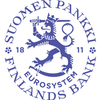Geopolitical tensions create new threats to financial stability
14.5.2024 11:00:00 EEST | Suomen Pankki | Press release
Finland’s financial system has remained stable despite the recession in the economy. The risks have been controlled particularly as a result of the long-term improvements made in financial regulation and supervision and the macroprudential policy measures taken.

Russia’s war in Ukraine, the conflict in Gaza and trade restrictions between different countries could create disruptions in the global economy and financial system. “The resilience of Finland’s financial system has remained robust. Geopolitical tensions have increased, and this could create new threats to financial stability,” notes Bank of Finland Deputy Governor Marja Nykänen in the Bank’s assessment of Finland’s financial stability, published today.
The financial stability assessment notes that the standstill in the housing and real estate markets and the considerable sensitivity to interest rate movements are increasing the risks in Finland’s financial system. Prices of existing homes have decreased substantially, housing sales have fallen and the construction of new dwellings has virtually halted. Bankruptcies among construction industry companies have increased, and banks’ credit risks on loans to the construction sector have grown. At the same time, household indebtedness has decreased, which has eased the risks.
If interest rates are cut and the economy recovers as anticipated, this will bolster the stability of Finland’s financial system. On the other hand, the risks faced by banks and by residential property and real estate investors could increase if housing and real estate sales do not pick up.
There will also be new and unforeseeable threats associated with digitalisation and climate change, and these could undermine financial stability in both the short and the long term. Digitalisation in the financial sector brings many opportunities but also increases risks regarding the transmission of disinformation and information influencing. The risks to financial stability arising from climate change and biodiversity loss are in part still difficult to assess.
Preparations should be made for dealing with new risks brought by a more challenging operating environment. “Expanding or reducing financial market regulation cannot in itself be the objective. Regulation must be taken forward on the basis of careful planning. Financial regulation should anticipate changes in the operating environment so that we are not simply fighting old crises,” says Deputy Governor Nykänen.
The ability of banks and borrowers to withstand economic shocks must be strengthened. A diversity of macroprudential policy measures will reinforce the resilience of banks and borrowers, enabling better preparedness for fluctuations in housing market activity and housing prices. Trust in the resilience and reliability of the financial system will be enhanced through further preparation for liquidity and cyber risks.
European companies need more diversified ways of financing their investments and creating a foundation for growth in their business. The European Union would benefit from a single and well-functioning capital market. “European businesses are too dependent on bank financing. The EU needs a capital markets union so that Europe can continue to be competitive in the face of pressures from other major economic powers. A strong European economy is the best protection against disruptions to the financial system,” says Nykänen.
- Presentation 14 May 2024, Deputy Governor Marja Nykänen
- Bank of Finland Bulletin publication website (in Finnish)
Keywords
Links
The Bank of Finland is the national monetary authority and central bank of Finland. At the same time, it is also a part of the Eurosystem, which is responsible for monetary policy and other central bank tasks in the euro area and administers use of the world’s second largest currency – the euro.
Subscribe to releases from Suomen Pankki
Subscribe to all the latest releases from Suomen Pankki by registering your e-mail address below. You can unsubscribe at any time.
Latest releases from Suomen Pankki
Eurosystemets penningpolitiska beslut5.2.2026 15:23:03 EET | Pressmeddelande
ECB-rådet beslutar om penningpolitiken i euroområdet. ECB-rådet beslutade idag att hålla de tre styrräntorna oförändrade.
EKP:n rahapoliittisia päätöksiä5.2.2026 15:23:03 EET | Tiedote
EKP:n neuvosto päättää euroalueen rahapolitiikasta.8 EKP:n neuvosto päätti tänään pitää EKP:n kolme ohjauskorkoa ennallaan.
I december 2025 hade hushållen nästan lika mycket banklån som ett år tidigare30.1.2026 10:00:00 EET | Pressmeddelande
Beloppet av de finländska hushållens sammanlagda utestående banklån var nästan oförändrat från året innan och uppgick till 140,9 miljarder euro i december 2025. Det förekommer emellertid skillnader i utvecklingen av utbetalningarna av lån för olika ändamål.
Kotitalouksilla oli joulukuussa 2025 pankkilainaa lähes saman verran kuin vuosi sitten30.1.2026 10:00:00 EET | Tiedote
Suomalaisten kotitalouksien yhteenlaskettu pankkilainakanta pysyi lähes muuttumattomana vuodentakaisesta; se oli 140,9 mrd. euroa joulukuussa 2025. Eri käyttötarkoituksiin otettujen lainamäärien kehityksessä on kuitenkin eroja.
Household bank loans almost unchanged year-on-year in December 202530.1.2026 10:00:00 EET | Press release
Finnish households’ aggregate stock of bank loans remained almost unchanged from a year earlier, at EUR 140.9 billion in December 2025. However, developments in loan volumes by different purposes vary.
In our pressroom you can read all our latest releases, find our press contacts, images, documents and other relevant information about us.
Visit our pressroom